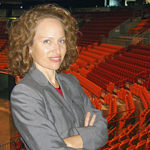How do you build—then lead—an international corporation’s legal team from scratch, especially when your headquarters might be seen as less than “geographically desirable: in this case, in the middle of the great North American woods?” What does it take to attract, mold, and keep the best and brightest? According to Ashley Furniture Industries Inc.’s general counsel Dan Aiman, a man who is doing just that, “You have to hire smart, manage smarter, and have every team member see themselves as stakeholders.”
Founded in 1970, Ashley is one of the largest, most recognized home-furniture manufacturing and retailing firms. Though based in the small town of Arcadia, Wisconsin, Ashley’s products are marketed worldwide under the Ashley and Millennium labels to the tune of $3.3 billion in annual revenue.
Since 2011, when Ashley decided to establish an in-house legal team, Aiman has been vice president and general counsel at the company. “They did it for the usual reasons: a desire to lower costs and also make them more fixed and less variable,” says Aiman of the founding of the legal team. “But they also wanted an esprit de corps that’s exemplified by internalizing such duties.”
Aiman was charged with establishing Ashley’s entire legal division. But building it from scratch, especially when the corporation is headquartered in a Wisconsin town populated by 3,000 people and a 90-minute drive from the closest major metropolitan area of Minneapolis and St. Paul, was his first challenge.
“We didn’t get a huge flood of applicants,” Aiman says. “But, on the other hand, there wasn’t a dearth of interested prospects either. Not everyone wants to work off the beaten path in Arcadia. But that can be an advantage, because our prospect list is leaner and composed of qualified people who want to be here. So, the first objective was obvious, attract and hire the right people. Fortunately, we have.”
Aiman’s team is small and includes a few paralegals and three attorneys who handle various legal aspects involving human resources, licensing, general business transactions and contracts, transportation, and insurance. “We still outsource our real-estate legal work, and—when necessary—litigation,” he says. “I also benefit from having my original law-firm mentor working here, Bill Koslo, who primarily interacts with executive officers and works on special projects. He’s practiced law longer than I’ve been alive and is a great resource. I bounce a lot of ideas off of him. And if we need an extra hand on a project, he loves to roll-up his sleeves and pitch in.”
Since no legal team member has a particular specialty, compartmentalization is not part of the landscape. “There’s a lot of teamwork, and a certain amount of crossover involved: especially on large projects,” Aiman says. “No one gets pigeonholed for very long, and rarely does one team member work on any single project alone.”
“Most importantly, I trust the people I hire,” Aiman adds. “And it’s not difficult qualifying these prospects from a smaller pool, because they want to be here.”
A large metropolitan law firm might receive hundreds of applicants. But Aiman rarely receives more than 20 or 25. “So it’s just a matter of deciding which ones we want to bring in for interviews, which usually ends up being around one person in five. What we look for, past their qualifications, is how they’ll fit in as both leaders and followers, because the sum is greater than the parts.”
Aiman knew from previous experience that he’s never been one to micromanage, so with the team assembled, he now lets each member do what they do best. And since Ashley’s culture embraces collaboration, Aiman is secure in delegating, though he admits to sometimes doing too much. “If I put someone in a position that’s over their head, it’s my fault,” he says. “People grow best if they’re not placed in no-win situations.”
Aiman also encourages his team to lean on, and lead, each other. “Sometimes they need direction from me, so I need to know if the one who approaches needs guidance or reinforcement of their opinion,” he notes. “I’d rather counsel them more on the former by helping them see an issue from all sides. My goal is give them a framework to make sound decisions, not to rubber stamp decisions they’ve already made.”
In fact, Aiman’s involvement has been tailored to help each team member realize balanced solutions, rather than simply justifying opinions. “We’ve hired the right people who respond to our culture,” says Aiman, noting how well it’s worked thus far. “And though it was challenging to find folks interested in working in a smaller community, I think we’d all say it was worth the effort.”

